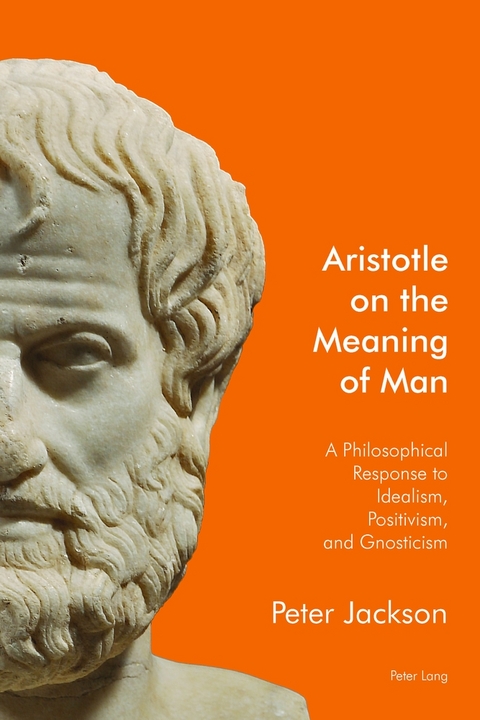
Aristotle on the Meaning of Man
A Philosophical Response to Idealism, Positivism, and Gnosticism
Seiten
2016
|
New edition
Peter Lang Ltd (Verlag)
978-1-906165-71-0 (ISBN)
Peter Lang Ltd (Verlag)
978-1-906165-71-0 (ISBN)
Why was (and is) Aristotle «right» and why are we «wrong»? In other words, why are Aristotle’s philosophical reflections on man and the world full, real, and convincing and why is so much of our modern philosophy partial and false? This work offers a detailed assessment of Aristotle’s thought in response to these questions.
Using «man» as a case study, this work shows how Aristotle philosophically treats «him» as a physical, biological, social, political, ethical, creative, poeticising, and philosophising object in the world. It then continues by laying out his consequent conclusions regarding the necessary capacities of natural objects in the world.
Regarding the modern philosophical approach to «man», this work shows that it flows from several directions into narcissism, nihilism, and a desire to control and manipulate the world and other people. In short, this work considers these approaches and seeks to show that Aristotle’s philosophy is «right», true, and commendable and that our modern philosophy is (often) «wrong», vacuous, and distasteful.
Using «man» as a case study, this work shows how Aristotle philosophically treats «him» as a physical, biological, social, political, ethical, creative, poeticising, and philosophising object in the world. It then continues by laying out his consequent conclusions regarding the necessary capacities of natural objects in the world.
Regarding the modern philosophical approach to «man», this work shows that it flows from several directions into narcissism, nihilism, and a desire to control and manipulate the world and other people. In short, this work considers these approaches and seeks to show that Aristotle’s philosophy is «right», true, and commendable and that our modern philosophy is (often) «wrong», vacuous, and distasteful.
Contents: Is Aristotle’s Philosophy «divine, but useless»? – Surveying the Definition of Aristotle’s «Man» – Exploring the Habits of Aristotle’s «Ethical Man» – Exploring the Habits of Aristotle’s «Working Man» – Aristotle on Becoming Something – The Gods and Giants Grapple with «Art»! – Aristotle’s «Philosophical Man» Finds His «Goods» – Aristotle’s «Philosophical Man» Sees the World in a Grain of Sand – Aristotle’s «Philosophical Man» Gets to Know His Limits – Aristotle’s «Philosophical Man» Finds «God» – Aristotle’s «Man» Competes in the Philosophical Marketplace – Aristotle’s «Philosophical Man» Finds Himself – Plato’s «Clever Modern Man» Loses Himself.
| Erscheinungsdatum | 11.10.2016 |
|---|---|
| Verlagsort | Witney |
| Sprache | englisch |
| Maße | 150 x 225 mm |
| Gewicht | 610 g |
| Themenwelt | Geisteswissenschaften ► Philosophie ► Philosophie Altertum / Antike |
| ISBN-10 | 1-906165-71-8 / 1906165718 |
| ISBN-13 | 978-1-906165-71-0 / 9781906165710 |
| Zustand | Neuware |
| Haben Sie eine Frage zum Produkt? |
Mehr entdecken
aus dem Bereich
aus dem Bereich
mit Sokrates, Seneca, Platon & Co. im Gespräch
Buch | Hardcover (2023)
FinanzBuch Verlag
18,00 €


